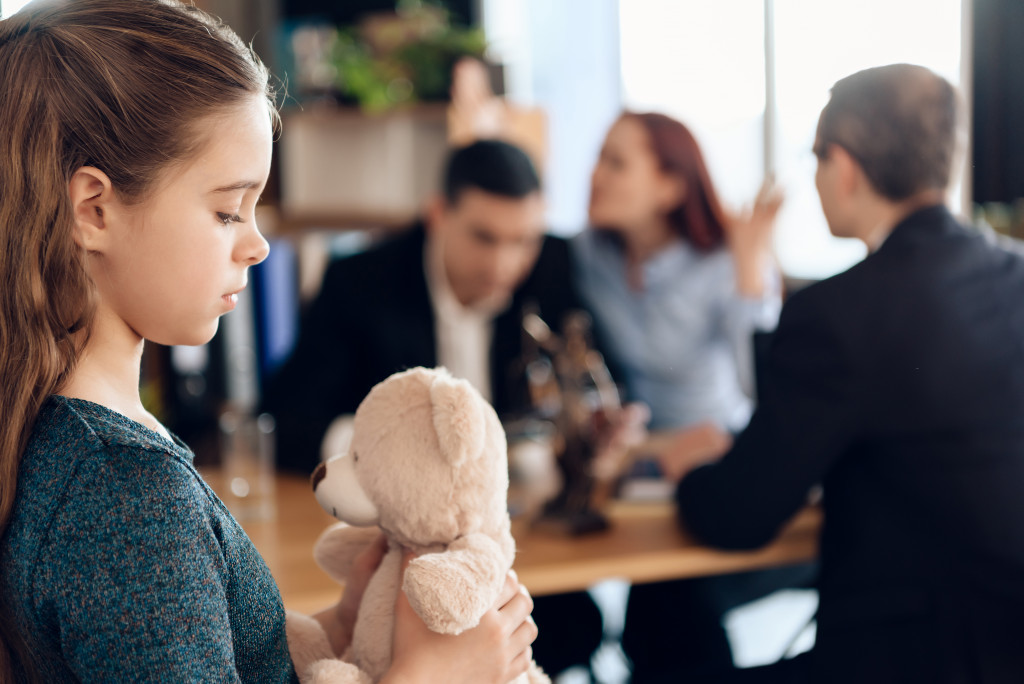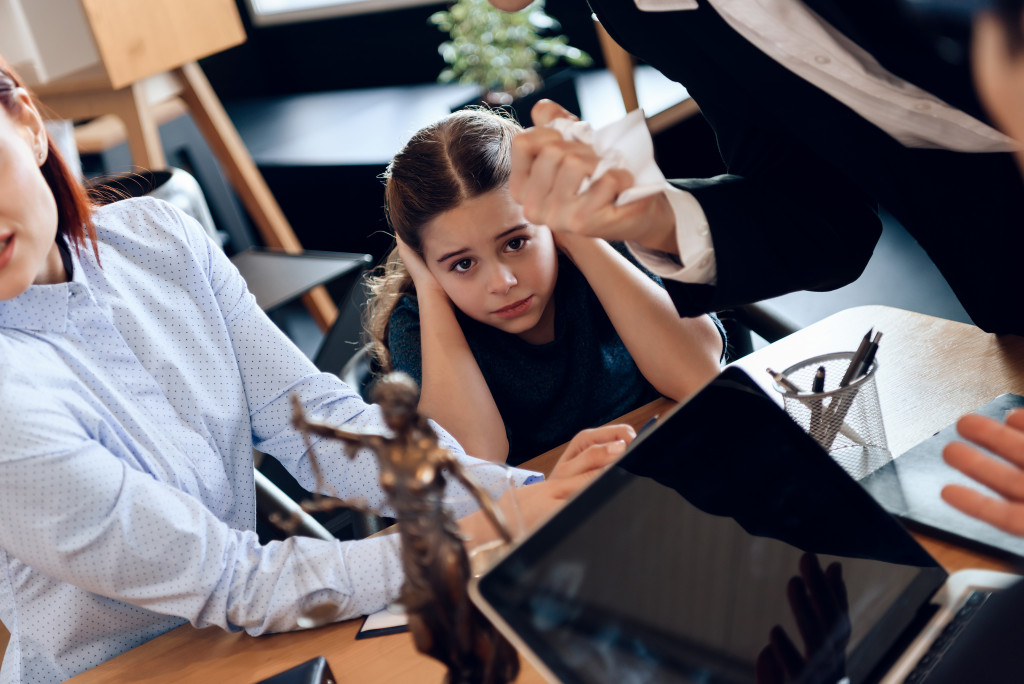Divorce hits children badly. Their whole world crumbles down in no time. While parents themselves have difficulty settling money and responsibilities, children are left with figuring things out on their own. The effects of divorce are both short-term and long-term. The most significant impact is the relationship of the parents with their children.
If a home has multiple children, the agony gets severe. The reason is that most judges delegate custody separately to both parents. Separation anxiety does kick in. And if we were to talk about a single child, loneliness can be an essential factor. But sometimes, what emerges, is a result of the way the divorce is handled. However, one can try their best to lessen the discomfort and pains associated with it. Here are some divorce after-effects which you should know to take measures.
Academic Performance
This is the first visible impact that you will see. The children get distracted by the legal proceedings and the change of homes. It can turn their whole world upside down. So, the first thing that parents will notice is a drop in grades. If one is unable to counsel the child well, it can lead to more devastating effects. It has been seen that their ambition also suffers s setback. It takes a lot of time for a child to go back to studies. It can be heavy on a child’s mind. So teachers will often complain about a lack of energy and resourcefulness incomprehension.
After the divorce, some parents cannot afford proper education alone. Therefore, their children cannot make it to college. In such a scenario, seek a child support attorney. They can assist the parent who is in a difficult situation with insufficient finance. Getting legal assistance can have huge effects on the child’s nourishment, housing, and education needs.
Various states in the US have different laws on financial and mental support from parents. The higher-earning parent has to be a key contributor, too, in most cases. Moreover, in such situations, the assets and incomes of the parent are also taken into consideration, keeping the child’s future in mind.
Social Life
Children often distance themselves from others socially. If the child had been very active or happy before, one might find them going inside a shell. Children are primarily unable to hide their feelings. So one can clearly see it written all over their faces. One might find them fearful of certain situations and being regressive.
Moreover, children will stay away from group activities to avoid being questioned again and again about the divorce. The only way to make a child come out of it is through proper counseling. The ultimate aim is to make the children understand that divorce is not nasty. It is a choice that can make both parents happy, individually.
Overall Health

One can find the children encountering eating and sleeping issues. Some children may gorge more on fast food due to a single parent working overtime. It ultimately leads to obesity and health issues. Moreover, sleep patterns also change. Some children also have panic attacks and nightmares. Sometimes, they do visualize all the altercations and arguments between parents taking place over and over again.
Apart from physical health, mental health is also affected. Children often enter a phase of depression. Some even attempt suicide. This sort of behavior generally affects children who are 12 years and more. One can consult a mental health professional to alleviate themselves and their wards of such problems. They may even become prone to drug abuse as well, with their peers and friends. Counselors can help mitigate the situation with proper counseling sessions. Health workers at school can also assist in the process by watching out for eating disorders.
Relationships
Considered one of the long-term effects of divorce, children from broken homes often stop believing in the institution of marriage. They also develop self-doubts and think twice before entering such alliances. One can find them, fearing closeness. They choose less secure attachment traits. The levels of oxytocin are lower in such individuals as well. Most start believing that their parents were not that caring. The key to mitigating these after-effects is good parental talk and collaborative parenting. This is quite common today.
Children face troubles when their parents separate, but their hardships become less painful if parents handle the situation maturely. This can be done by making the child believe in the positive side of the divorce. If both parents spend quality time with their children, they feel wanted and happy. If a child sees their parents happy after a divorce, they will surely understand that it happened for good reasons. Proper parental guidance, although individually, can also lead to better academic grades.

